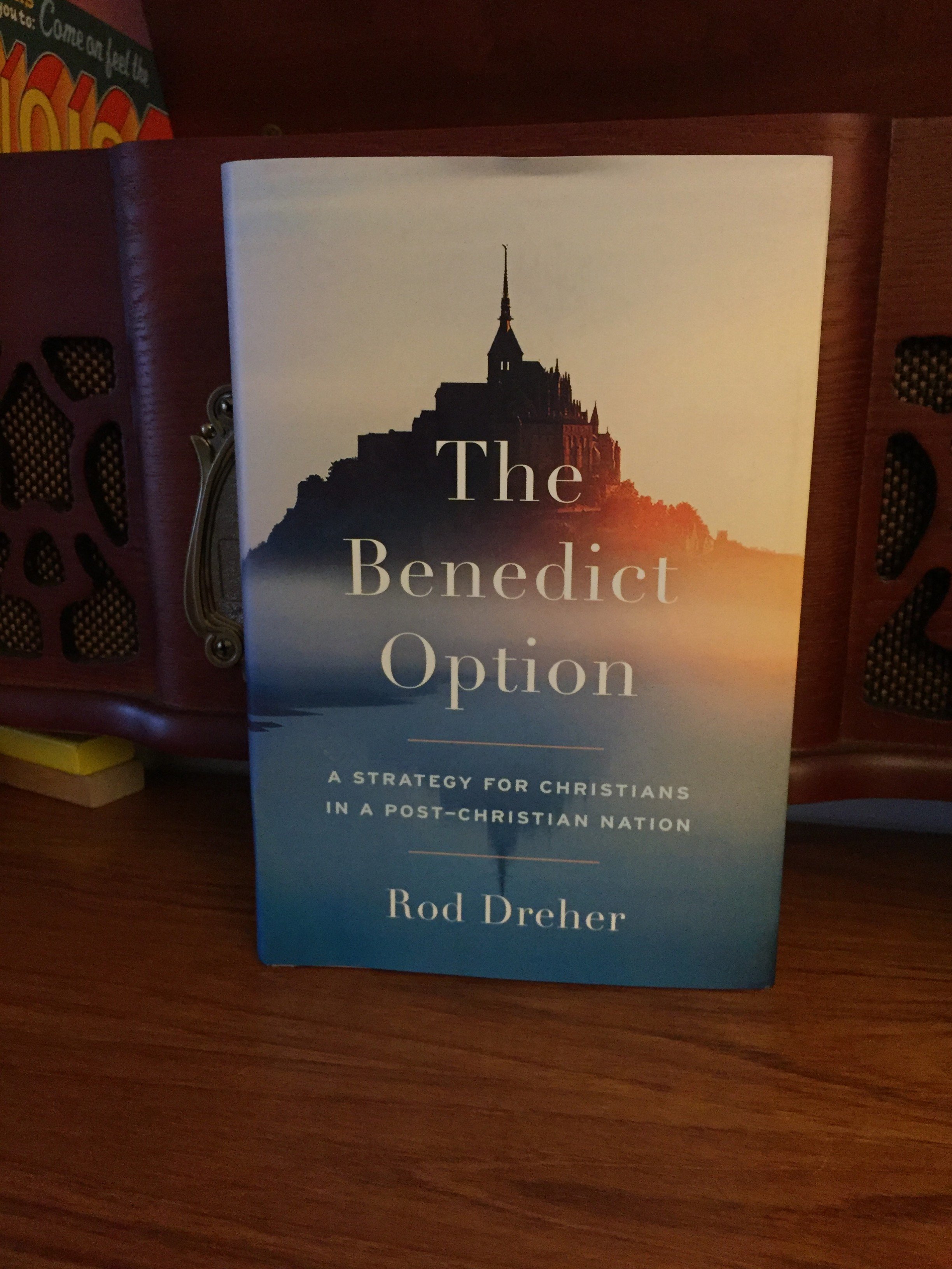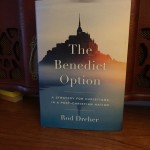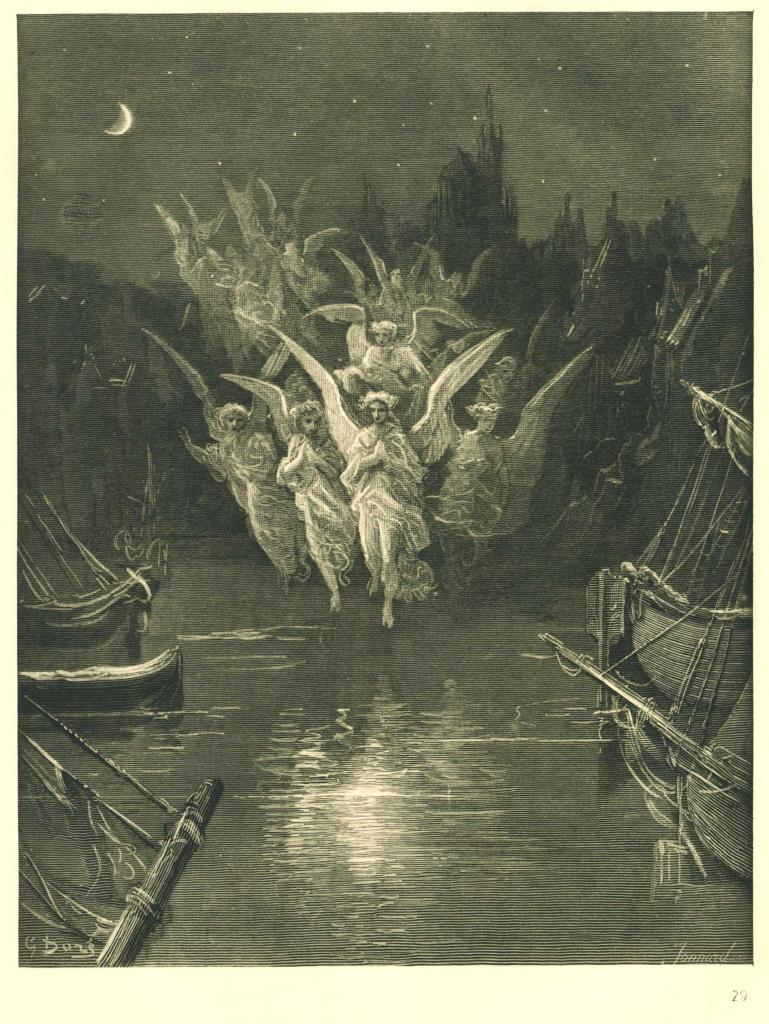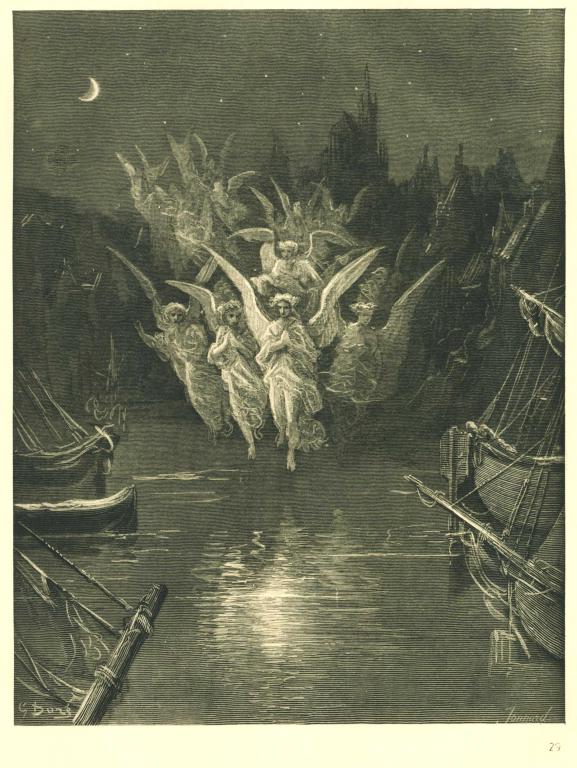David Russell Mosley

Lent
4 April 2017
The Edge of Elfland
Hudson, New Hampshire
Dear Readers,
There’s a decent chance that those familiar with this blog will have heard of Rod Dreher and his Benedict Option––if for no other reason that I’ve written about it on multiple occasions, even offering my own “option” at one point. Well, after nearly a decade of writing about the Benedict Option, Dreher has put out a book on the subject, entitled The Benedict Option: A Strategy for Christians in a Post-Christian Nation. This book has certainly been contentious. People seem to be either totally on board with Dreher’s project as laid out in the book or totally against it. One of the best reviews out there is by Patheos Catholic managing editor, Sam Rocha. Sam gets at many of my own concerns both with the book and other critiques of the book. And while I don’t wholly agree with Sam’s assessment, I think it’s an important one. So, I do not wish to do that kind of review. Instead, I’m going to do a series of letters on this book to look at it in different contexts. First, in the rest of this letter, I will briefly outline the thesis of the book and some key issues I have with it (yes, this will be more like a traditional review). In my second letter, I want to continue some of the work I’ve been doing in telling you about Michael Martin’s Sophia Option. In my third, I want to spend a bit of time on what Jonathan Ryan of Sick Pilgrim has been calling the Patrick Option. And in my fourth, and final letter, I want to put Dreher in the context of Distributism and some other relevant Catholic social thought.
But first, a brief note on the name “the Benedict Option.” I think too many Catholic critics of Dreher have gotten caught up on the invocation of Benedict. They seem to think that the existence of the Benedictine charism, and the ability to be a lay Benedictine ought to be what Dreher means, for a Benedict Option. I think this is to take the name too literally. I’m not saying the name isn’t potentially imprecise, but that I’m not bothered by Dreher invoking what he sees as Benedict’s mission in the Middle Ages (or at least the outcome of what Benedict did, whether intentionally or not) in the name of his method (he calls it a strategy in the subtitle, but then quotes someone saying it can’t be a strategy in the conclusion) for living in the world today.
To briefly outline Dreher’s thesis, the United States is increasingly becoming a Post-Christian nation and is pushing “conservative” Christians to the margins. The primary method of the marginalization is through a reduction of religious liberty. The method of this reduction is primarily the LGBTQ “agenda” and (or as sourced in) Moral Therapeutic Deism. Dreher actually sees this as the last step in a series of “five landmark events” that have “rocked Western civilization and stripped it of hits ancestral faith.”
Dreher identifies these five events as:
-
In the fourteenth century, the loss of belief in the integral connection between God and creation––or in philosophic terms, transcendental reality and material reality
-
The collapse of religious unity and religious authority in the Protestant Reformation of the sixteenth century
-
The eighteenth-century Enlightenment, which displaced the Christian religion with the cult of Reason, privatized religious life, and inaugurated the age of democracy
-
The Industrial Revolution (ca. 1760-1840) and the growth of capitalism in the nineteenth and twentieth centuries
-
The Sexual Revolution (1960-present) (23).
Dreher sees this list as causative. That is, the problems of today, at least to some extent, have their origins in the fourteenth century. Now, unlike some other reviewers, I am sympathetic to this. I think many of the woes of modernity have their source theology and as expressed in the late Middle Ages. I’m not as tied as, say John Milbank, to blame individuals (such as Duns Scotus) or whole movements (such as the Franciscans). Nevertheless, let’s play a game.
Let’s say that Dreher is right. That ultimately the things that make the United States a post-Christian nation have their source in ideas like nominalism (or univocity) from the Middle Ages. If that’s the case, then why on earth should we treat only the latest symptom (the Sexual revolution) and not the root cause, a lack of understanding about how the world and God are related to one another? Dreher spends too much time focused on religious liberty (which is ultimately defined as a Christian business owner being able to deny business to a gay couple if it violates their religious beliefs; cakes for gay weddings, flowers for gay weddings, pictures for gay weddings, pretty much anything for a gay wedding). This is my most fundamental issue with this book. If Dreher is right about the sources of our current state of affairs, we shouldn’t be treating the symptoms, but the root cause.
The second major issue I want to talk about is a lack of consistency throughout the work. Here’s a chief example that particularly struck me: In the list of 5 key events that led to post-Christian America is the Industrial Revolution. Now, other than talking a bit about how we’re too tied to technology (a point with which I agree), Dreher doesn’t actually define how the Industrial Revolution and capitalism contributed to the need for the Benedict Option. However, in his chapter on how Christians need to prepare to lose their jobs, Dreher quotes a man saying that it isn’t back to the land (the call of Catholic Workers, Catholic Land Movement, Distributists, Neo-Agrarians, and others) but back to industry, which somehow gets tied to trade jobs (191-2). Now to be fair, the man calling for a return to industrialism and factory jobs apparently has skilled labor factory jobs. Still, that’s not quite the same as being an electrician belonging to an electrician’s guild.
Honestly, what can I say about this? You can’t have it both ways. You can’t claim that the industrial revolution is one of the causes for the decay of Western Civilization and also claim that Christians need to return to “industry”. That’s illogical. Worse still is the equation of industry with trades. I’m all for a return to trades and should writing and teaching not pan-out for me, I hope I find myself capable of learning a trade. I think we need more trades, and I would see the return of the guild. But none of this is a return to “industry”. Even in the example Dreher gives, this industry and trade is factory work.
Third, and my final criticism for this letter (and I will provide more criticism as I compare Dreher to people and ideas like, Michael Martin’s Sophia Option, or G.K. Chesterton and distributism), Dreher’s idea of the Benedict Option seems to me to lack grounding. To be sure, he invokes Benedict and his Rule, he notes the source for all of this which is McIntyre’s After Virtue; but it feels almost as if he’s suggesting he’s the one who can offer up the solution. Now, fortunately (or unfortunately), I doubt my little letters are important enough for Dreher to respond to them (as he did to Rocha’s in an … interesting way). But, if he did I can imagine what he would say: the book is rife with people who are already doing the kinds of things Dreher would see done. The problem, however, is that for a book dedicated to a man born over 1500 years ago it is profoundly lacking in references to similar ideas or writers as potential sources of inspiration.
Dreher has complained that some critics, like Rocha, have desired an academic/scholarly book when that was neither Dreher’s intention, nor within his ability. That is not what I’m saying. I’m not saying I want to see more footnotes, or more academic rigor. What I am saying is that it seems odd not to mention G.K. Chesterton and to have only a fleeting reference to distributism. I am saying that it seems odd not to mention the lessons we might be able to learn from the Mondragon Corporation. I am saying it is odd not mention magazines like the Distributist Review. I understand that he wanted to focus on real attempts to do the Benedict Option, but would it have killed him to give it a more rigorous grounding? And we shouldn’t forget (but I’ll get more into this in my next letter) that Dreher’s Benedict Option is lacking in rigorous theological grounding. That is, many modern Christians who might be swayed by this idea will still have trouble comprehending why or if the Benedict Option actually sees the world as something different than the way secular culture views it.
I want to end, this already overly long letter, by saying something positive about Dreher’s idea (the book I struggle to say positive things about): I don’t hate it. I think Dreher is potentially on the right track when he tries to get us to understand that modern United States culture (and by that I really mean United States culture since the United States began) is not ultimately or totally compatible with Christianity. I don’t think the chief example of this is our approach to sex (though I do think modern culture is out of step with a deep and rich theology of sex); but I do think that United States Christianity has allowed itself to become too tied to the United States. This we would do well to remember. And I don’t even think all of Dreher’s suggestions (or strategies or whatever they are) are bad or wrong. Let’s live more intentionally, let’s be the Church in our local communities. These are not bad things. But … well, I’ll try to explain my further problems with Dreher’s Benedict Option as I compare it to and interrogate it by other ideas and movements in my next few letters.
Sincerely,
David
















